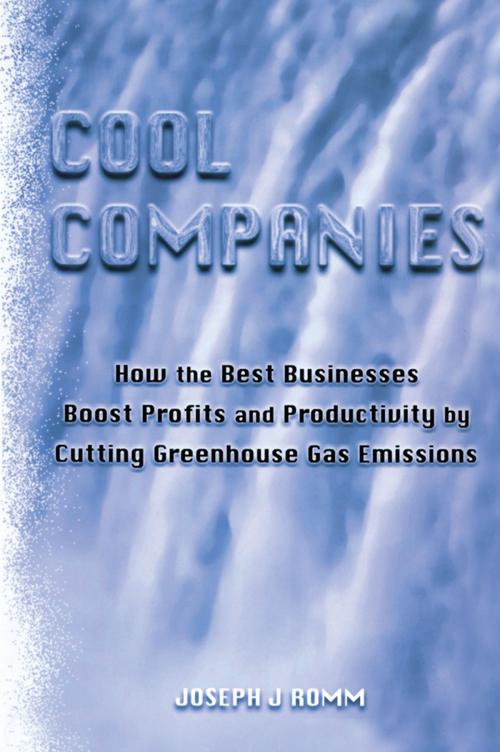Cool Companies
How the Best Businesses Boost Profits and Productivity by Cutting Greenhouse Gas Emmissions
Business & Finance, Management & Leadership, Management| Author: | Joseph J. Romm | ISBN: | 9781134196371 |
| Publisher: | Taylor and Francis | Publication: | April 8, 2014 |
| Imprint: | Routledge | Language: | English |
| Author: | Joseph J. Romm |
| ISBN: | 9781134196371 |
| Publisher: | Taylor and Francis |
| Publication: | April 8, 2014 |
| Imprint: | Routledge |
| Language: | English |
'Cool Companies' turns on its head the idea that measures to avert global warming and climate change will pile massive costs on to the industrial sector. It shows how the smartest companies have been able to make money through the improvements that reduce their greenhouse gas emissions. Industry is going to have to adjust to the new tax and regulatory regimes being introduced around the world, aimed at reducing emissions and meeting internationally agreed targets. The more far-sighted companies have recognised the opportunities this offers. Joseph Romm shows how successful they have been in taking them. Romm profiles more than 50 companies, and describes their experiences in the context of their corporate strategies. All are leaders in their sectors and many are household names such as Xerox, Toyota, BP (now BP Amoco), DuPont, Compaq and 3M. They grasped early on the strategic importance of cutting emissions. By working to do so, through increased efficiency, new technologies and improved processes, they have cut their energy costs and boosted their productivity, often dramatically - improvements which translate straight down to the bottom line. The message is clear. Cool Companies - those prepared to overhaul their policies and innovate - are much more likely to thrive in the new climate for business, while those which have to be dragged backwards into the future will face higher costs and tougher competition.
'Cool Companies' turns on its head the idea that measures to avert global warming and climate change will pile massive costs on to the industrial sector. It shows how the smartest companies have been able to make money through the improvements that reduce their greenhouse gas emissions. Industry is going to have to adjust to the new tax and regulatory regimes being introduced around the world, aimed at reducing emissions and meeting internationally agreed targets. The more far-sighted companies have recognised the opportunities this offers. Joseph Romm shows how successful they have been in taking them. Romm profiles more than 50 companies, and describes their experiences in the context of their corporate strategies. All are leaders in their sectors and many are household names such as Xerox, Toyota, BP (now BP Amoco), DuPont, Compaq and 3M. They grasped early on the strategic importance of cutting emissions. By working to do so, through increased efficiency, new technologies and improved processes, they have cut their energy costs and boosted their productivity, often dramatically - improvements which translate straight down to the bottom line. The message is clear. Cool Companies - those prepared to overhaul their policies and innovate - are much more likely to thrive in the new climate for business, while those which have to be dragged backwards into the future will face higher costs and tougher competition.















